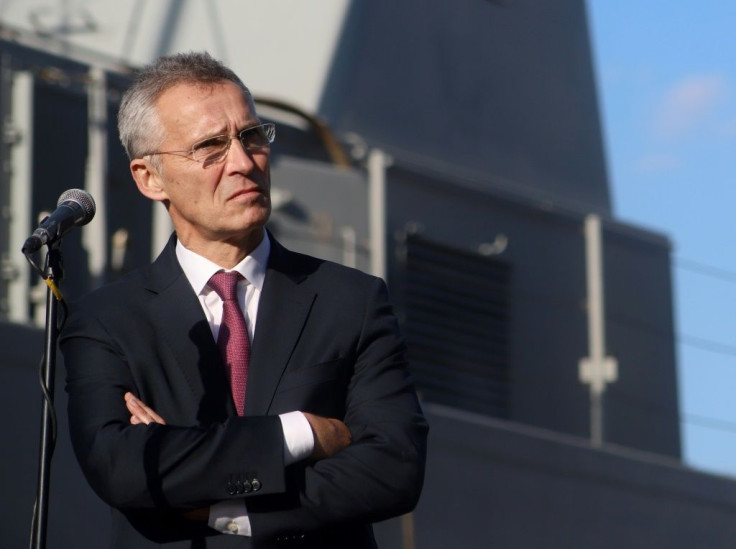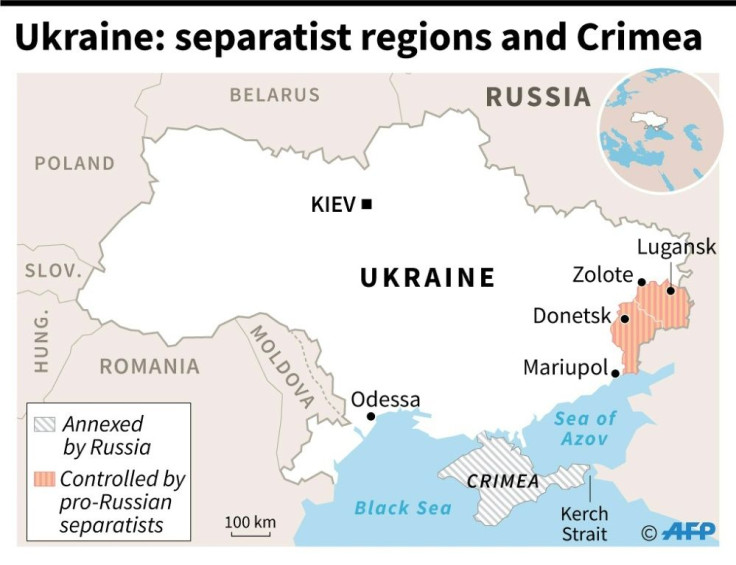NATO Demands Russia 'Withdraw All Troops' From Ukraine

NATO chief Jens Stoltenberg on Wednesday welcomed a pullback by the Ukrainian army and Moscow-backed separatists in eastern Ukraine, but reiterated calls for Russia to "withdraw all their troops".
Tuesday saw a long-awaited pullback between the two sides in a key area of the war-torn east.
The move was a precondition for the first face-to-face talks between Russian President Vladimir Putin and his Ukrainian counterpart Volodymyr Zelensky.
"We welcome all efforts to reduce tensions, to withdraw forces and to make sure that we have a peaceful solution to the conflict," Stoltenberg said in the Ukrainian port city of Odessa, praising Zelensky's "renewed effort".
"But we know there is a long way to go because there are still ceasefire violations," he said as he began a two-day visit to the ex-Soviet country that was set to include a meeting with Zelensky on Thursday.
"NATO states very clearly that Russia has a special responsibility to... withdraw all their troops, all their officers" from eastern Ukraine, Stoltenberg added.
Since coming to power in May, comedian-turned-president Zelensky has sought to revive a peace process to end the five-year-old separatist conflict in eastern Ukraine that has claimed some 13,000 lives.
But those efforts have stalled as Kiev's forces and the separatists have repeatedly failed to pull back troops from the frontline because of exchanges of gunfire.
Putin said Moscow was "always ready" for talks "as long as they are well prepared and don't just lead to empty conversations but end with concrete results that are beneficial to a settlement as a whole".
'Russia doesn't have a say'
Zelensky's peace plan including the troop pullback has been strongly criticised by many in Kiev, especially war veterans and nationalists.

"Zelensky himself doesn't look like a Ukrainian nationalist, naturally, but whether he will be able to deal with them it's hard for me to say now," Putin told reporters during a visit to Budapest.
Kiev and its Western backers accuse Russia of funnelling troops and arms across the border to fan the flames of the conflict. Moscow has denied the claims.
While in Odessa, Stoltenberg visited four NATO naval ships moored in the harbour and said they demonstrate the "strong support of NATO to Ukraine".
Meeting Stoltenberg, Ukraine's deputy prime minister Dmytro Kuleba stressed that Ukraine had "an ambitious goal to meet the principles and criteria for NATO membership within five years".
Russia strongly opposes Ukraine's pro-Western trajectory.
"Nato's doors remain open," Stoltenberg said as the two officials spoke in front of Ukrainian students.
"Sometimes you get the impression that whether Ukraine should be a member of NATO or not is for Russia to decide," he said.
In fact, "Russia doesn't have a say," he added.
"They do not have any legal and real platform to have any influence over such decision."
burs-jza/jj
© Copyright AFP {{Year}}. All rights reserved.





















